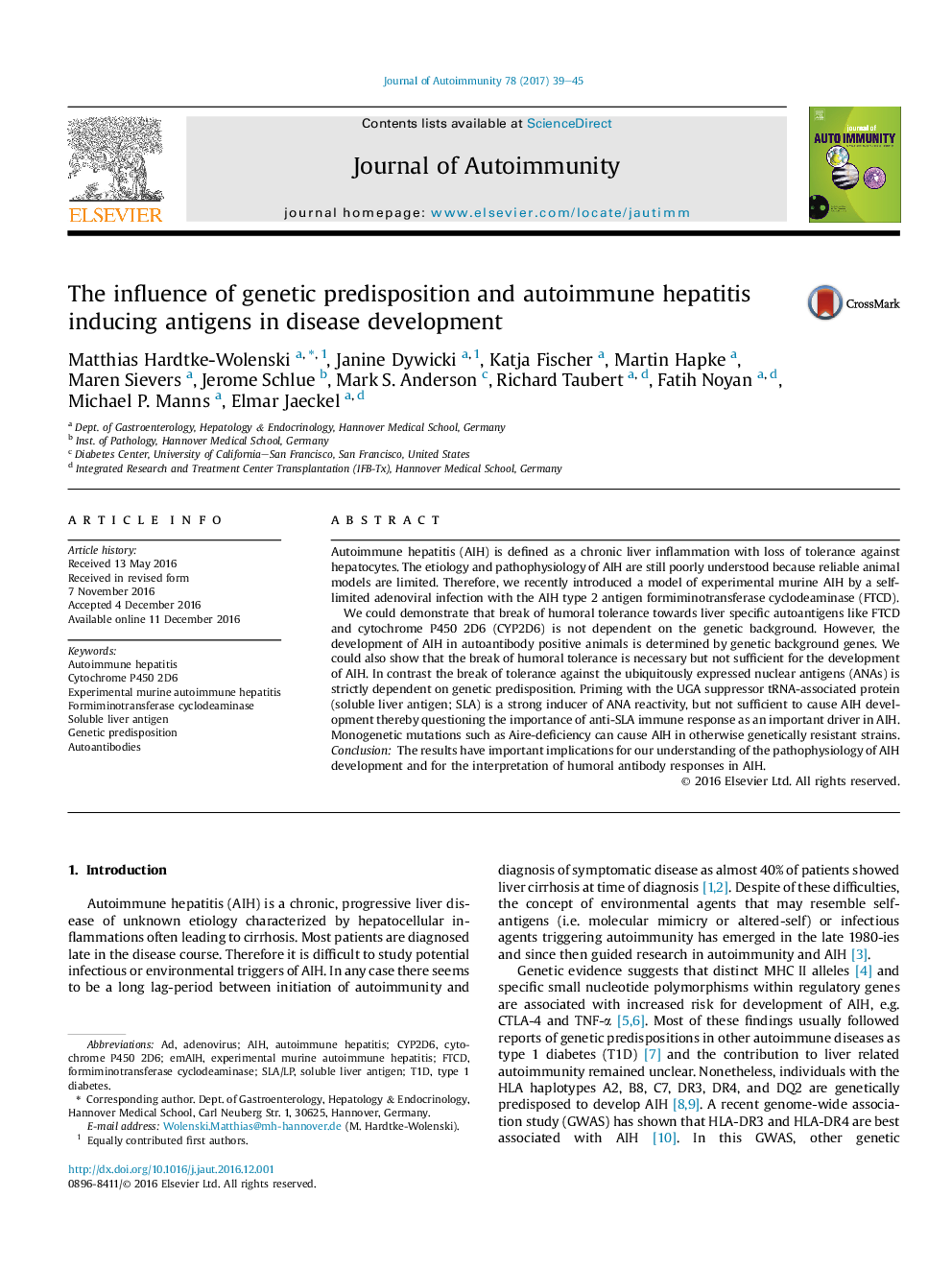| Article ID | Journal | Published Year | Pages | File Type |
|---|---|---|---|---|
| 5667857 | Journal of Autoimmunity | 2017 | 7 Pages |
â¢Break of humoral tolerance is not dependent on the genetic background.â¢Break of humoral tolerance is necessary but not sufficient for the development of AIH.â¢Break of tolerance is dependent on genetic predisposition.â¢Monogenetic mutations can cause AIH in otherwise genetically resistant strains.
Autoimmune hepatitis (AIH) is defined as a chronic liver inflammation with loss of tolerance against hepatocytes. The etiology and pathophysiology of AIH are still poorly understood because reliable animal models are limited. Therefore, we recently introduced a model of experimental murine AIH by a self-limited adenoviral infection with the AIH type 2 antigen formiminotransferase cyclodeaminase (FTCD).We could demonstrate that break of humoral tolerance towards liver specific autoantigens like FTCD and cytochrome P450 2D6 (CYP2D6) is not dependent on the genetic background. However, the development of AIH in autoantibody positive animals is determined by genetic background genes. We could also show that the break of humoral tolerance is necessary but not sufficient for the development of AIH. In contrast the break of tolerance against the ubiquitously expressed nuclear antigens (ANAs) is strictly dependent on genetic predisposition. Priming with the UGA suppressor tRNA-associated protein (soluble liver antigen; SLA) is a strong inducer of ANA reactivity, but not sufficient to cause AIH development thereby questioning the importance of anti-SLA immune response as an important driver in AIH. Monogenetic mutations such as Aire-deficiency can cause AIH in otherwise genetically resistant strains.ConclusionThe results have important implications for our understanding of the pathophysiology of AIH development and for the interpretation of humoral antibody responses in AIH.
